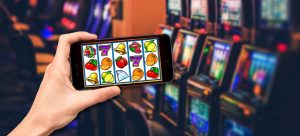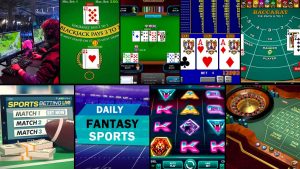Few people would dispute the appeal of becoming a professional poker player. All over the world, professional poker is creating a new breed of armchair millionaires of all shapes and sizes. Some have studied and master the game over several decades, others have struck it lucky online and suddenly found themselves at the biggest tables in Vegas.
Of course, it’s not as if anyone with a penchant for poker can just dive into the pro game and expect to win a fortune. If anything, it’s quite the opposite. On a global basis, it’s estimated that somewhere in the region of 20 million people now play poker online in the average year. Of these 20 million, an incalculable volume would jump at the chance of going pro.
Or at least, generating enough money to call poker their career.
Contrary to popular belief, you don’t have to become a dominating force in Las Vegas tournament circles to make big money playing poker. In fact, the vast majority of major online poker sites offer tables and tournaments to suit even the highest of high-rollers. If you’ve got the skills and the bankroll to make it happen, you could easily make your fortune without ever leaving home.
It’s simply a case of investing the necessary time and effort.
But assuming you’re serious about going pro, what’s the secret to making it happen? If you’re determined to make today the day you take that first step, where should you start?
Short answer – the following five steps could help set things moving in the right direction:
Step 1. Watch the Pro Game
First up, there’s no better way of gaining insight into professional poker than watching professional poker first-hand. Along with countless major tournaments taking place throughout the year, there are even dedicated poker channels to check out. And if there’s nothing happening at the time, YouTube is bursting at the seams with pre-recorded footage from thousands of major tournaments. This can be one of the best ways of seeing how the pros handle any given situation that may arise. You’ll see how their moves and decisions differ from your own, get a good idea how to anticipate the actions of others and so on. If there’s a skilled commentary team discussing what’s happening and why it’s happening as the game plays out, even better!
Step 2. Play More Real-Life Poker
Make no mistake about it – real-life poker is a completely different game to the online variant. The rules and winning hands may be the same, but that’s really where the similarity ends. When you’ve actually got your fellow poker players sitting right there in front of you, it’s a million miles away from staring at a screen. In person, you can pick up on things like body language, facial tells and so on. In addition, playing in person means not dealing with players popping in and out for just one hand at a time. You’ll be playing with the same bunch of people over an extensive period, giving you plenty of opportunity to develop your skills of intuition. It’s not to say online poker practice isn’t important, but you’ll gain so much more from the real-life variant.
Step 3. Play More Online Poker
That said, you’ll also need to invest heavily in online play. Given that you’re ultimately intending to make most of your money online, it simply makes sense to get to grips with the online game. Online poker players tend to approach things very different than they would in-person. But just as is the case with real-life poker, you’ll come across countless different playing styles when encountering foes online. The best advice is to acknowledge and accept the fact that online and offline poker are inherently different. Instead of treating the whole thing as one near-identical game, try building the skills and knowledge needed to master both. If you do begin hitting the big time online, it won’t be long before you’re headed to a major event in the real world.
Step 4. Study Like Crazy
Much of the work required to become a poker pro takes place away from the table. What’s more, you can’t expect the whole process to be a barrel of laughs from start to finish. You’ll need to take the research aspect of things very seriously, hitting the books and building your knowledge. Keep tabs on the latest news stories, articles, journals, interviews and so on – anything that comes from a responsible source. The thing to remember is that while luck will always determine the outcome, there’s a good amount of skill required to get the job done. Study the odds, analyse probable outcomes and build a mental checklist of what to do and when. As a poker pro, you should never find yourself simply making things up as you go along.
Step 5. Manage your Bankroll
Last but not least, you cannot and will not succeed as a professional poker player, unless you can manage your bankroll. In the early days in particular, you may find this the ultimate challenge. Going pro typically means setting yourself up for a period of relatively heavy and ongoing losses. You cannot realistically expect to start generating a profit at an early stage. All of which means that along with funding your poker play, you also need to have enough money to fund your lifestyle in general. It’s also worth having a backup plan in place, just in case things go south along the way. The last thing you want is to invest all your eggs in one basket, only to find out it wasn’t the right basket for you. Consider your current income and savings, calculate your expenses over the next six months and see if there’s still enough left over to cover your gambling costs. If not, you might want to wait a while and start saving!













